Who's calling on people to 'Boycott Germany'?
- Published
German brands and products are the latest target of political activists upset about the Greece bailout.
#BoycottGermany was first mentioned on Twitter in connection with the Greek crisis over the weekend, but started picking up on Monday. The hashtag has since been used more than 30,000 times, driven up the trending charts across Europe by left-leaning and anarchist voices.
Some are urging people to avoid products with barcodes starting with a sequence of numbers which indicates German origin:
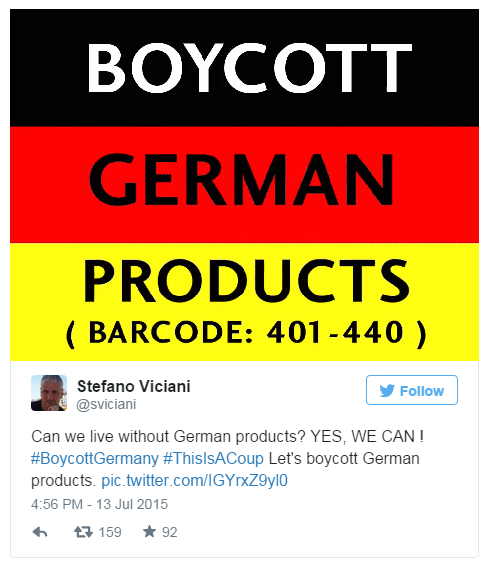
However, the codes refer only to the location of the parent company, not the place of manufacture, external. An item with a barcode beginning 401 could well have been made in France, Britain - or even Greece.
One of the most retweeted messages comes from David Graeber, an American anarchist activist and anthropology professor at the London School of Economics. He references the post-World War II cancellation of debts accrued by the Nazi regime:
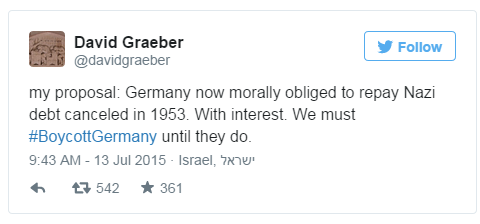
Others are calling for specific targeting of German luxury goods. "Don't buy that Volkswagen or Miele," one user says, external. Anti-Nazi propaganda posters are also being widely circulated:
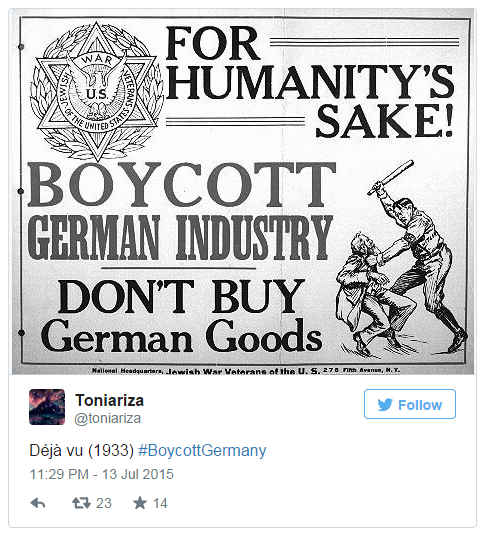
But the hashtag is also being widely used in Germany, and many were answering back to the calls for a boycott.
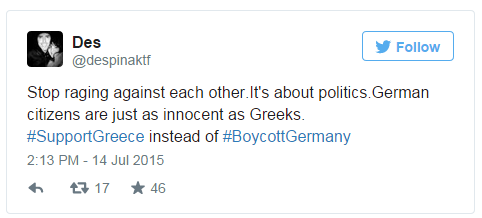
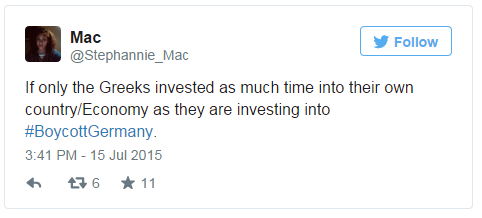
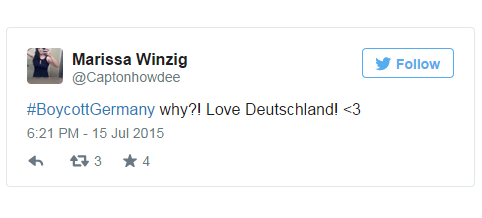
German journalist Thomas Walde, external sarcastically tweets: "Does the Greek demand for #BoycottGermany include German aid money? No? Well that's alright then."
Although Greek Prime Minister Alexis Tsipras has called the bailout agreement "irrational", he's pushing for the country's parliament to ratify the agreement by the end of Wednesday. Among the conditions for the bailout are higher taxes and an increase in the retirement age. The BBC is running a live page containing all the latest developments, which you can find here.
#ThisIsACoup trended worldwide - it started with a movement of left-wing activists in Spain
Earlier in the week the hashtag #ThisIsACoup trended across Europe as a reaction against the bailout agreement, and one of the Spanish activists behind that hashtag - it was being widely used by the Spanish left - was also one of the first to tweet in support of a boycott.
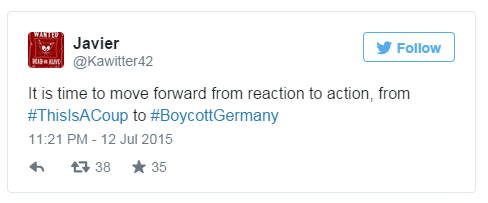
For their part, German businesses do not seem to be too worried about the call for a boycott, external. "We're taking this seriously, but there's no reason to panic," Volker Treier, head of the German Foreign Trade Chamber of Commerce, told Reuters on Tuesday. "There have been such calls, time and again since the beginning of the Greek crisis. They largely fizzle out without any effect."
And some are reacting to the hashtag with humour, and jibes about Greece:
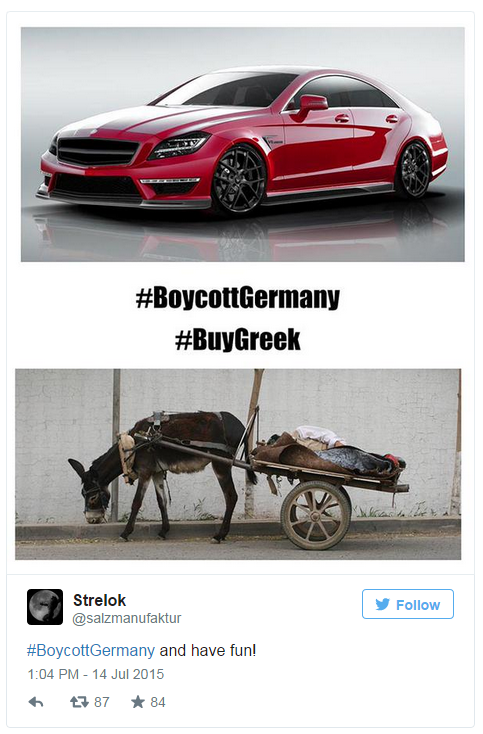
Blog by Joty Chopra, Mukul Devichand and Mike Wendling, external
Next story: What happened when two men walked through Moscow... holding hands?
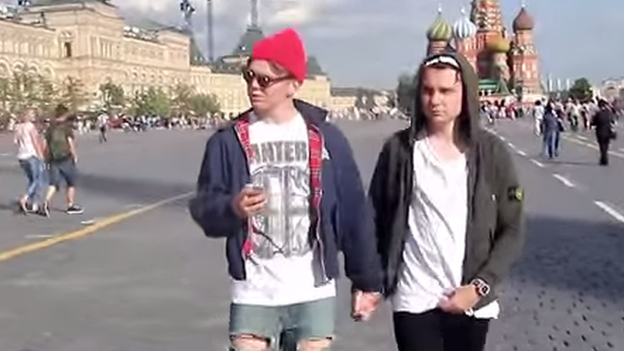
A still from a YouTube video by prankster group ChebuRussiaTV that has been watched more than 3 million times
The latest "social experiment" video to take off globally shows an apparently gay couple holding hands in downtown Moscow - and receiving harsh homophobic abuse. READ MORE
You can follow BBC Trending on Twitter @BBCtrending, external, and find us on Facebook, external. All our stories are at bbc.com/trending.